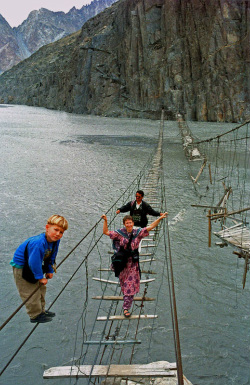Concentric Development’s purpose is to help organizations achieve more with their resources.
We do this by focusing on FOUR things:

- First, we help organizations measure their effectiveness and assess their impact. Often they don’t know how little change their efforts have brought about in the lives of the people they serve. A lack of tools to measure impact is one of the greatest impediments to non-profit effectiveness today.
- Second, we help organizations learn from their successes and failures to achieve greater effectiveness. We help them discover what works in a particular context. Often, we assist organizations to make a much-needed shift away from doing things for people towards doing things with people. It is not always an easy shift to make but it leads to deep and lasting impact.
- Third, we help organizations communicate their discoveries and learn from the work of others.
- Fourth, we help governments deploy public resources at the local level while retaining accountability and transparency.
We also act as a bridge

Our most effective work has been through long term partnerships with other implementing organizations. Not only are we then able to help them implement and trouble shoot new approaches but our wide range of experience enables us to serve as a bridge. We do this by spanning the divide between:
Secular and faith-based institutions – we help faith-based institutions learn from the work of organizations that are otherwise secular. For example, Gram Vikas, a clean water organization in the state of Orissa in India, has an approach to community water and sanitation that breaks down caste barriers which often hamper efforts to help the rural poor (see this video). Similarly, groups like the Poverty Action Lab at MIT (see this presentation by Esther Duflo) and the Center for Global Development generate practical ideas for solving many issues related to aid and poverty but many smaller organizations have never heard of them.
Non-government Institutions and Government – we help Non-Government organizations institutions coordinate and partner with local and national governments. Local government is often viewed as irrelevant or evil by virtue of being inept or corrupt, but the fact is that there is potentially much to be gained by reaching out to local government institutions. Often local government has budgets for roads, electricity, water, sanitation, agriculture, health and education which go unspent and lapse at the end of the fiscal year. Frequently there are ways to tap these resources, allowing a community development initiative to achieve far more. Sometimes local communities simply don’t know how to influence their elected representatives, and addressing that weakness can be a means of improving government effectiveness.
East and West -- our western roots combined with years of experience living and working in the developing world helps us bridge the cultural divide that often hampers collaboration and partnership between westerners and indigenous organizations.
Field and Home Office – we have worked on both sides of this equation, and we understand the differing priorities, perspectives, frustrations and pain points of field and home office staff. We understand the tensions stemming from competing needs for trust and accountability, for standards and freedom to adapt. We are well positioned to foster improved understanding and respect across this divide.
Secular and faith-based institutions – we help faith-based institutions learn from the work of organizations that are otherwise secular. For example, Gram Vikas, a clean water organization in the state of Orissa in India, has an approach to community water and sanitation that breaks down caste barriers which often hamper efforts to help the rural poor (see this video). Similarly, groups like the Poverty Action Lab at MIT (see this presentation by Esther Duflo) and the Center for Global Development generate practical ideas for solving many issues related to aid and poverty but many smaller organizations have never heard of them.
Non-government Institutions and Government – we help Non-Government organizations institutions coordinate and partner with local and national governments. Local government is often viewed as irrelevant or evil by virtue of being inept or corrupt, but the fact is that there is potentially much to be gained by reaching out to local government institutions. Often local government has budgets for roads, electricity, water, sanitation, agriculture, health and education which go unspent and lapse at the end of the fiscal year. Frequently there are ways to tap these resources, allowing a community development initiative to achieve far more. Sometimes local communities simply don’t know how to influence their elected representatives, and addressing that weakness can be a means of improving government effectiveness.
East and West -- our western roots combined with years of experience living and working in the developing world helps us bridge the cultural divide that often hampers collaboration and partnership between westerners and indigenous organizations.
Field and Home Office – we have worked on both sides of this equation, and we understand the differing priorities, perspectives, frustrations and pain points of field and home office staff. We understand the tensions stemming from competing needs for trust and accountability, for standards and freedom to adapt. We are well positioned to foster improved understanding and respect across this divide.
Finally, we seek to be a blessing

To serve and encourage
Relationships are central to our work, and we seek to establish close personal friendships with our partners as we encourage them, serve them, pray with them and celebrate their faithfulness and success.
Relationships are central to our work, and we seek to establish close personal friendships with our partners as we encourage them, serve them, pray with them and celebrate their faithfulness and success.